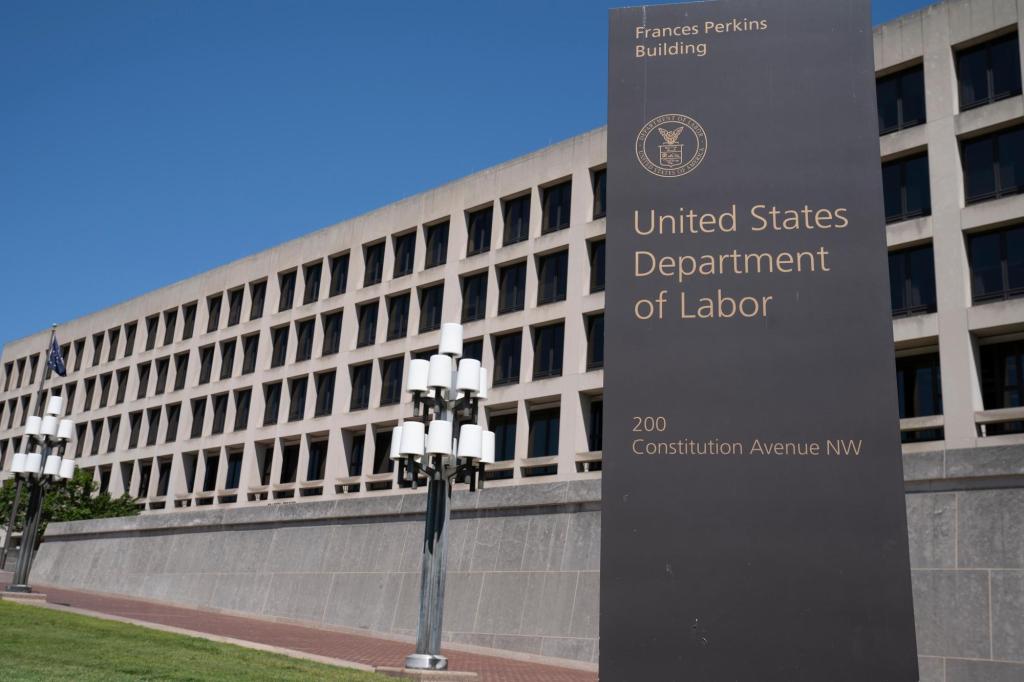

Tens of thousands of San Diego-based federal employees have until the end of the day Thursday to decide if they will remain at their jobs or resign, under a separation program introduced last week by the Trump administration.
The program, launched via email on Jan. 28 by the Office of Personnel Management to most of the country’s more than 2 million federal workers in a message dubbed Fork in the Road, gave a deadline of Feb. 6 to either commit to resign — and continue to earn a paycheck and benefits through September — or remain at their jobs “as part of an improved federal workforce.”
But that email and a cascade of follow up messages, FAQs and the resignation agreement language are mired in ambiguities and contradictions, labor law experts said.
The Trump administration and Elon Musk, through the Department of Government Efficiency, or DOGE, are shrinking and reshaping the federal workforce. Changes include the return-to-office mandate, use of furloughs and reclassification to at-will status — where the employer can fire you as long as it’s legal — for a substantial number of federal employees.
The memo alludes to layoffs, saying that people who remain in their jobs will be “treated with dignity” if their position is cut. The government can rescind the offer but it is binding for the employee, a template resignation agreement says.
That is part of a broader push to dismantle or remake institutions that are considered by the administration to be wasteful, disloyal or standing in the way of its objectives.
The San Diego region is a hub for military and civilian federal workers. Federal agencies with a presence here include the Department of Justice, border enforcement and law enforcement agencies, the Internal Revenue Service and the Department of the Navy and the Department of Defense. The range of jobs runs from U.S. attorneys to welders to intelligence analysts.
An estimated 64,469 civilian employees were based in the county’s five congressional districts in 2023, according to a December 2024 report by the Congressional Research Service. This does not include employees of the U.S. Postal Service, Department of Justice and a number of law enforcement agencies including the Federal Bureau of Investigation.
Who’s covered, who isn’t
Most federal agencies are subject to the memo. Exceptions include active duty members of the military, the U.S. Postal Service, workers described by OPM as being in immigration enforcement, public safety and national security, and select other positions.
Unions and employment lawyers in San Diego, Los Angeles and beyond said the administration’s messages are packed with confusing contradictions and unclear terms.
“They (employees) don’t really know the terms of the agreement,” said Brennan Kahn, a Los Angeles employment attorney. “They don’t know how it’s going to be enforced. So that’s the problem with taking it: the less of a plan of action there is, the more inconsistency, the less likely people really want to take it, because it doesn’t sound like they’re actually going to come through with what they’re promising.”
An updated FAQ published Wednesday by OPM appeared to aim to offer greater clarity, answering questions such as “Is The Offer Legally Binding?” and “Is Congressional Approval Required?” In short: yes and no.
Around 1% of eligible federal workers agreed to resign as of Tuesday, according to The Hill; the political news site said the Trump administration expected between 5% and 10% of offers would yield resignations.
The American Federation of Government Employees, which represents almost 1 million federal workers, urged people not to take the “vague offer with conflicting details.”
In a FAQ to its members, the union wrote, “There is not yet any evidence the administration can or will uphold its end of the bargain, that Congress will go along with this unilateral massive restructuring, or that appropriated funds can be used this way, among other issues that have been raised. … We are encouraging AFGE members NOT to resign or respond to this email until you have received further information and clarification.”
The union is cautioning people to not view the resignation as a buyout or a Voluntary Separation Incentive Payment program. “Instead, it purports to offer employees the ability to submit a deferred resignation and claims that employees who do so will continue to receive pay, while still possibly working, until September 30, 2025. Notably, however, the Program contains no guarantee that an employee’s resignation will be accepted. Nor does the Program guarantee that an employee whose resignation is accepted will receive the benefits that the Program purports to offer,” the FAQ says.
It also provides guidance as to whether or not people who resign will be required to keep working through September.
“They may be. OPM’s statements are conflicting on this point,” the union wrote.
Several other unions that represent federal workers did not respond to interview requests.
The AFGE and several other unions filed a lawsuit Wednesday against the Office of Personnel Management and its director. The suit aims to halt the “Fork” memo deadline and “require the government to articulate a policy that is lawful, rather than an arbitrary, unlawful, short-fused ultimatum which workers may not be able to enforce.”
One worker’s concerns
A civilian Department of Defense worker based in San Diego who received the memo said it was hard to know if the resignation agreement terms are legal. The worker asked not to be named, fearing that could compromise their employment.
The memo, the worker said, appears to reveal a lack of awareness about the nuances of agency funding. The worker, whose identity the Union-Tribune verified, did not plan to resign.
By staying, the worker is bracing for a new work environment that may include fewer job protections and where workers may not ask for the accommodations they need, so as to not ruffle feathers.
“I don’t know how safe my job is,” the worker said.
Legal experts weigh in
Kahn, a managing partner of Employee Justice Legal Group, said he has spoken with federal workers who are concerned and confused about the resignation agreement’s language.
“I think for the most part, I’m seeing that people are resistant” to resigning, Kahn said.
Among the people he is hearing from — a self-selected sample of people exploring legal representation — the decision to resign is complex. They’re weighing job security, job hunting in a mixed economy, and what it would mean to leave long civil service careers and start over in a job market that would be flooded by other applicants in their same shoes.
As for the resignation agreement itself, Kahn added, “I think people are concerned that even if they agree to it, they won’t even get paid as promised. People don’t trust the administration to actually do what it’s saying they’ll do. They’re not even sure right now, if they resign, if they keep working, if they’re going to be furloughed, if they’re going to be placed on some sort of leave of absence. If they’re furloughed and put on a leave of absence, does that mean they’re going to still get paid and receive their benefits?”
Other questions concern pensions: “Does that resignation affect their government pension, as opposed to a termination?” Kahn said. “There’s also implications for unemployment benefits, as well as disability, because a lot of these things are predicated on whether you’ve lost your job for cause, whether you quit, whether you really can’t work versus you just decided not to. So there’s all these concerns, and it’s way more complicated than just, ‘Yeah, sure, I’ll take the money until September, and then I’ll move on.’”
His firm has received queries about disability accommodations and return-to-office rules.
“It’s not people who are just calling or like, ‘Hey, I just don’t want to work in person.’” Kahn said the federal workers he’s hearing from “are people with actual disabilities who are really concerned about their ability to work in person. Those people are scrambling to get doctor’s notes to see if they can get accommodations and doing everything they can to prove that they really need the remote work. And it’s not just their preference.”
In fiscal 2023, just above 40% of all federal employees worked remotely in some capacity, according to a 2024 OPM congressional report. Calling employees back to physical offices and scrapping telework has regained momentum in the private sector after the pandemic ushered in an era of remote work. The shift back to physical offices is particularly evident in the tech sector.
Originally Published:




